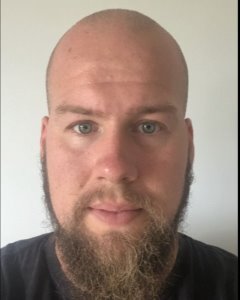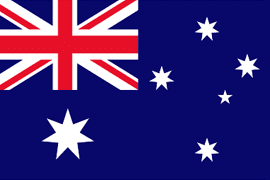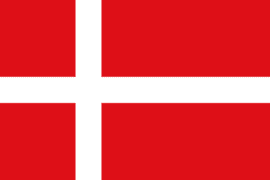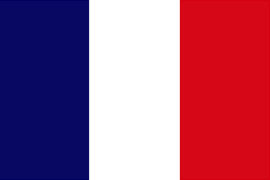BATT Ryley

Events and Medals
Schedule
Change
| Start Time | Location | Event | Status |
|---|---|---|---|
| Yoyogi National Stadium |
AUS Australia 53 DEN Denmark 54 |
Finished |
|
| Yoyogi National Stadium |
FRA France 48 AUS Australia 50 |
Finished |
|
| Yoyogi National Stadium |
AUS Australia 53 JPN Japan 57 |
Finished |
|
| Yoyogi National Stadium |
USA United States 49 AUS Australia 42 |
Finished |
|
| Yoyogi National Stadium |
AUS Australia 52 JPN Japan 60 |
Finished |
Biographical Information
Highlights
:
| Rank | Event | Year | Location | |
|---|---|---|---|---|
| Paralympic Games | ||||
| 1 | Mixed | 2016 | Rio de Janeiro, BRA | |
| 1 | Mixed | 2012 | London, GBR | |
| 2 | Mixed | 2008 | Beijing, CHN | |
| 5 | Mixed | 2004 | Athens, GRE | |
| World Championships | ||||
| 1 | Mixed | 2014 | Odense, DEN | |
| 2 | Mixed | 2018 | Sydney, NSW, AUS | |
| 2 | Mixed | 2010 | Vancouver, BC, CAN | |
| 6 | Mixed | 2006 | Christchurch, NZL | |
:
Motorbikes, four-wheel driving, camping. (paralympic.org, 17 May 2020)
:
Wife Crystal
:
English
:
New South Wales Gladiators [Australia]
:
Brad Dubberley [national], AUS
:
He dislocated his shoulder before the 2011 Asia-Oceania Championships in Seoul, Republic of Korea, and again before the semifinal of the tournament. Despite this he played throughout the competition, including the final. (smh.com.au, 11 Dec 2011)
He underwent elbow surgery in 2010. (smh.com.au, 11 Dec 2011)
He underwent elbow surgery in 2010. (smh.com.au, 11 Dec 2011)
:
He began playing wheelchair basketball competitively in 2002. (paralympic.org.au, 01 Aug 2014)
:
He was initially reluctant to try the sport because he disliked wheelchairs. "I didn't want to do wheelchair rugby at all but a bloke named Tom Kennedy, who'd won a medal at the Sydney Paralympics, was hosting a wheelchair rugby clinic for able-bodied kids and all my friends jumped in the chairs and had a great time. Still, no one could get me into one. About two weeks after I first saw wheelchair rugby, I was with my dad and a couple of friends on a weekend away and we skateboarded down to the beach. I threw my skateboard into the bushes to hide it while I went down to the surf, went for a swim for two hours and then went back up but some bugger had stolen it. I had no mode of transport and something clicked in my head that I should give the wheelchair a go. The next time at school sport I jumped in a chair and loved playing wheelchair rugby." (athletesvoice.com.au, 22 Aug 2019)
:
To win his third Paralympic gold medal at the 2020 Games in Tokyo. (paralympic.org, 17 May 2020)
:
US motocross rider Travis Pastrana. (wwrc15.com, 2015)
:
His grandfather, and his father. (Documentary film Rising Phoenix, 2020; athletesvoice.com.au, 22 Aug 2019)
:
"Anything is possible." (Facebook page, 16 Mar 2020)
:
He was named the Best 3.5 Class Player at the 2016 Canada Cup in Richmond, British Columbia. (iwrf.com, 26 Jun 2016)
In 2014 he received the Medal of the Order of Australia [OAM]. (dailytelegraph.com.au, 26 Jan 2014)
He was named Most Valuable Player [MVP] at the 2011 Asia-Oceania Championships in Seoul, Republic of Korea. (Facebook page, 16 Mar 2020)
In 2010 he was named MVP in the US national league, the world championships, the Four Nations Championship, and the Canada Cup. (paralympic.org.au, 20 Dec 2011)
In 2014 he received the Medal of the Order of Australia [OAM]. (dailytelegraph.com.au, 26 Jan 2014)
He was named Most Valuable Player [MVP] at the 2011 Asia-Oceania Championships in Seoul, Republic of Korea. (Facebook page, 16 Mar 2020)
In 2010 he was named MVP in the US national league, the world championships, the Four Nations Championship, and the Canada Cup. (paralympic.org.au, 20 Dec 2011)
Legend
- :
- Gold Medal Event
- :
- Silver Medal Event
- :
- Bronze Medal Event
Timing and scoring provided by OMEGA. Results powered by Atos
 Australia
Australia Wheelchair Rugby
Wheelchair Rugby DEN
DEN FRA
FRA JPN
JPN USA
USA



 :
: :
: